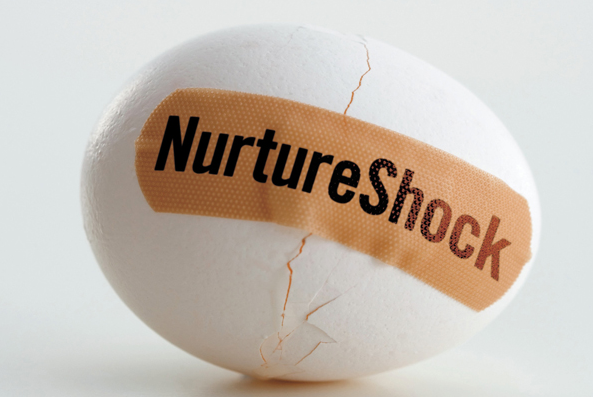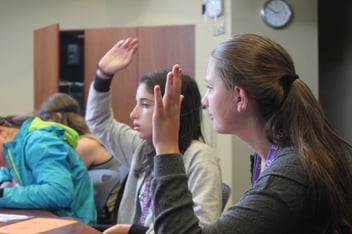True Grit: How Best to Raise Our Children?

"NurtureShock: New Thinking About Children" by Po Bronson and Ashley Merryman is a deeply captivating and at times surprising book about what we have come to believe about a variety of issues in childrearing and teaching. And why our instincts and our practices have been so very wrong.
In 10 well-organized, wide-ranging chapters (on topics from praise to sleep to race to being labeled gifted), Bronson and Merryman tell us what the science really says about kids. And why our instincts — as parents, as educators, as well-meaning citizens — can be so very off the mark. Turns out, praising kids too much can be detrimental, more racially diverse schools have more racially segmented cliques, intelligence testing for the preschool set is only accurate 25% of the time. And as it turns out, kids are sleeping an hour less on average than they were 30 years ago — and it affects everything from mood, to points on an IQ test, to childhood obesity.
Challenging those instincts is a concept that Brian Williams, host of NBC's Rock Center, profiled on a tour through two New York City schools. The schools (KIPP Academy, a public charter school, and Riverdale Country School) believe that building and instilling character — in the form of persistence, resilience, and grit — in their students serves those students far better in the long run than heaping on the praise.
In NurtureShock, adept researchers and skillful writers Bronson and Merryman do a brilliant job of summarizing data and making it accessible.
When Bronson and Merryman delved into the research that is the foundation for their book, their discoveries were surprising and “simultaneously disorienting.” They too wondered, “how could our instincts be so off base?” What they found, and have now shared with the rest of us, is that "the actual instinct — the biological drive that kicks in — is the fierce impulse to nurture and protect one’s child."
Bronson and Merryman chose the specific topics in their book because “the research surprised [them] — it directly challenged the conventional point of view on how kids grow up.” They found, however, that the more they learned, the more this thinking about children and the accompanying approach, “felt self-evident and logical.”
Both Bronson and Merryman weave pieces of their own lives into the stories they tell. This makes the work more relatable and in many ways more encouraging. Bronson, himself a parent, admits that he still struggles to comply with some of what the science suggests. He concedes a certain cognitive and emotional dissonance with what he knows and what he wants to do — particularly in the area of praise.
An initial reaction to NurtureShock (and the Grit Movement as a whole) may feel discouraging, alarming, even a bit hair-raising. (It’s too late! I’ve been doing it all wrong!) But there is optimism in this book. Bronson and Merryman contend that “small corrections in our thinking today could alter the character of society long term, one future-citizen at a time.”
NurtureShock upends many current paradigms about kids, from preschoolers to preteens and beyond. Bronson and Merryman cull and digest fascinating research for us and make the book a coherent, convincing page turner.



